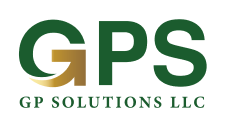Beneficial Ownership Information (BOI)
Everything You Need to Know About Beneficial Ownership Reporting
The U.S. Corporate Transparency Act (CTA) mandates that certain companies report beneficial ownership information (BOI) to the Financial Crimes Enforcement Network (FinCEN) to combat money laundering, tax fraud, and other illicit finance.
Who Must File
As of March 26, 2025, only foreign reporting companies registered to do business in the U.S. are required to file a BOI report—unless they qualify for one of the exemptions.
Domestic U.S. entities (LLCs, corporations, etc.) are no longer required to file under the interim final rule issued by FinCEN.
Filing Deadlines for Foreign Reporting Companies
- If your company was registered before March 26, 2025:
-
- You must file your initial BOI report no later than April 25, 2025. This is a 30‑day deadline calculated from the effective date of the updated rule.
- If your company is registered on or after March 26, 2025:
-
- You must file your initial BOI report within 30 calendar days of receiving notice that your registration is effective.
- These deadlines apply only to foreign reporting companies. Domestic U.S. companies (LLCs, corporations, etc.) are currently not required to file.
Who Is Considered a “Beneficial Owner”?
A beneficial owner is any individual who:
- Directly or indirectly owns 25% or more of the company, OR
- Exercises substantial control over the company (for example, senior officers or individuals with decision-making authority).
U.S. persons are excluded from beneficial ownership reporting under the current rule.
What If Your Company Information Changes?
If your company experiences changes to beneficial ownership information (new owners, updated addresses, changes in ownership percentages, etc.), you must update your BOI report within 30 days of the change.
Exemptions — Domestic vs. Foreign Reporting Companies
Domestic (U.S.) Entities
- As of March 21, 2025, all entities created in the U.S. (domestic corporations, LLCs, etc.) and their U.S. beneficial owners are exempt from BOI reporting. FinCEN will not enforce penalties against them.
Foreign Entities Registered in the U.S.
- Entities formed outside the U.S. but registered to do business within U.S. jurisdictions remain subject to BOI reporting unless they qualify for other exemptions (e.g., large operating companies, tax-exempt entities).
- Such foreign reporting entities are also not required to report any U.S. persons as beneficial owners; U.S. persons are exempt from reporting BOI in respect to those entities
What Needs to Be Reported
For applicable foreign reporting companies, the BOI report includes:
- Beneficial Owners: Individuals owning ≥ 25% of the company or exercising substantial control (excluding U.S. persons).
- Company Applicants: Individuals who filed formation or registration documents on behalf of the company.
- Note: U.S. persons are excluded from BOI reporting obligations in both roles under the updated interim rule.
Are There Any Exemptions?
Yes. Certain entities are exempt from BOI reporting. Examples include:
- Large operating companies with 20+ full-time employees, $5M+ annual revenue, and a physical U.S. office
- Tax-exempt entities
- Publicly traded companies
We can help you determine whether your company qualifies for an exemption.
Ready to Order?

Ready to Order?
Please feel free to contact our representatives to guide you via chat or telephone at +1 (877) 330‑2677.
Our company offers professional business filing services that ensure your company documents and applications are accurately filed and in compliance.









